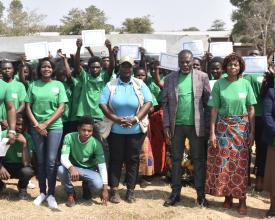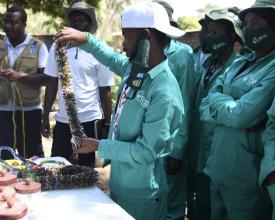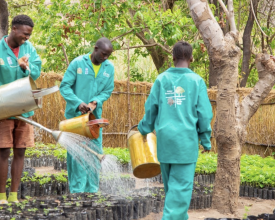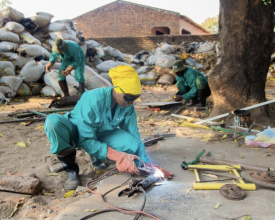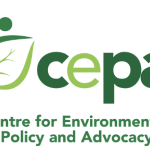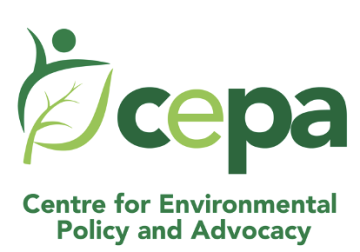
GREEN CORPS FOR THE RESTORATION OF MALAWI'S DEGRADED FOREST LANDSCAPES
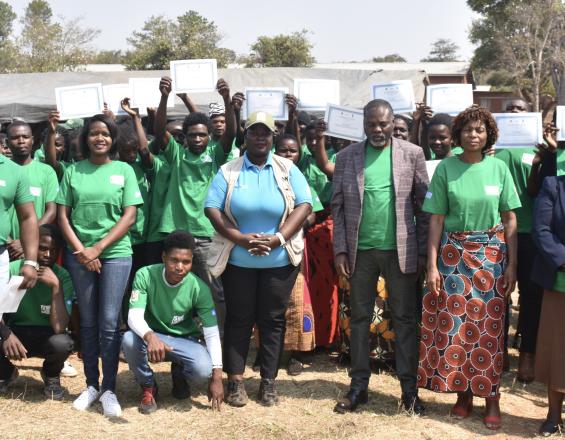
Malawi Green Corps supports Malawi Vision 2063 by advancing a greener economy and unlocking youth potential as key agents of development. It aligns with the UN Decade on Ecosystem Restoration (2021–2030), aiming to prevent, and reverse ecosystem degradation. The initiative builds on lessons from the Malawi Youth Forestry Service and the COVID-19 recovery plan. Through government-identified hotspots in 10 districts, Catholic Relief Service (CRS) provides human and financial resources to recruit and train up to 2,000 youth aged 18–35 in environmental and forestry management, entrepreneurship, and forest literacy. Each youth cohort participates for up to 4 months. During this period, youth acquire practical skills and opportunities to generate green jobs, support others through employment, and contribute to building a sustainable economy. CRS oversees day-to-day supervision of participants, while overall project monitoring is conducted by UNDP Malawi in coordination with the Ministry of Natural Resources and Climate Change.
Contexte
Challenges addressed
Malawi faces interconnected environmental, social, and economic challenges. COVID-19 deepened poverty, unemployment, and disrupted health and education systems, with up to one million jobs at risk—especially for youth and women. Economic contraction, reduced trade, and reliance on informal, resource-dependent livelihoods worsened food insecurity. Social distancing and loss of income pushed communities to overexploit degraded ecosystems. Environmentally, Malawi suffers from low resilience to climate shocks, deforestation, and ecosystem decline due to reliance on rain-fed farming and biomass. These stressors feed into one another, trapping communities in cycles of poverty and vulnerability. Addressing these crises requires solutions that restore land, protect livelihoods, and support long-term recovery and resilience—particularly for youth and rural communities reliant on natural resources.
Emplacement
Traiter
Summary of the process
The Malawi Green Corps integrates restoration, employment, and skills development through a set of connected strategies that reinforce each other. Identifying and rehabilitating degraded hotspots lays the environmental foundation for action, while community engagement and transparent payment systems ensure local ownership and accountability. Youth recruitment focuses on communities near target sites, maximizing local economic impact. Restoration activities, such as afforestation and waste clean-up, directly create jobs, while also serving as platforms for practical, hands-on training. Peer learning and mentorship complement technical training in civic engagement, gender equality, and health, building confidence and employability. These skills are further linked to green business development through initiatives like Zanchito, allowing youth to turn environmental work into long-term opportunity. Together, these elements create a coherent model where environmental restoration, social inclusion, and economic resilience grow in tandem.
Building Blocks
Malawi Green Corps Launched
UNDP signed partnership agreements with the Government of Malawi and the selected service provider to deliver core objectives, including: identifying and rehabilitating environmental hotspots aligned with national watershed, forest, and landscape restoration priorities; confirming roles and responsibilities for district and community engagement; establishing a salary accountability and tracking system (linked to national ID); designing and sharing an online mentor and peer platform (co-supported by the UNDP Acceleration Lab); and an M&E framework for measurement.
Recruitment and Mobilization of Green Corps Cohorts
Recruitment of youth prioritizes localizing economic benefits to host communities and
districts, with preference to engaging workers living adjacent hotspot areas. Leveraging UNDP’s
partnership with Malawi’s National Registration Bureau (NRB), biometric national ID cards will be
used by the service provider to validate personnel and ensure transparency of labour inputs and
remuneration. Recruitment guidelines will be finalized by the service provider in consultation
with UNDP and GoM, incorporating gender, disability and income-poverty considerations.
Consistent application of health and safety protocols, including those for COVID-19 as well as
protection safeguards for vulnerable people, will be adhered to by all partners. The service
providers must include personnel protective equipment (PPEs) as part of its procurement plan.
Restoration of Environmental Hotspots
Up to 5,000ha of degraded land will be restored by the Malawi Green Corps, including through
clean-up of illegal dump sites containing non-hazardous waste. Recyclable materials will be
diverted from the waste stream for repurposing, recycling and/or sale, providing further job and
income generation opportunities. Afforestation and reforestation of degraded sites will focus on
vulnerable watersheds and maximize use of fast-growing indigenous species of trees, shrubs and
grasses suitable to the sites, with linkages to ongoing integrated watershed management and
land restoration initiatives being delivered through government and development partners,
including ecosystem-based adaptation initiatives financed through the GEF. For example, Green
Corps members may work in similar locations to participants in the national social protection
programme to ensure that restoration efforts are complementary, and may link to lake and river
basin interventions under the existing Transformational Action for Resilience in Malawi
(TRANSFORM) initiative.
Youth Skills Development and Peer Learning
Through technical partners such as the Ministry of Natural
Resources and Forests, the partnership ensures members of the Malawi Green Corps will
benefit from peer learning, transfer of employable skills, and opportunities for youth engagement
in environmental networks and coalitions. Members of the corps receive training in social
accountability, sexual and reproductive health and rights, and civic engagement in order to take
advantage of opportunities from the bidder and/or other available training. Gender
mainstreaming will also feature prominently by offering equal opportunities to young women
and men to join the Green Corps, while also delivering protection and gender equality training
including on SGBV and HIV/AIDS, to all members. While the CO has experience with each of these
organizations, a RFP will be released to inform the final selection of service providers and
performance milestones. Outcome 4 will also identify opportunities to build the skills of youths
so that they are able to develop and pursue nature-based businesses, including through grant
applications to the new Zanchito initiative starting in 2021. This approach will expand the focus
beyond employability to green business development. The bidder will collaborate with UNDP
and the Zanchito initiative to promote access to skills development and entrepreneurship
training.
Impacts
The Malawi Green Corps (MGC), led by the Government of Malawi and supported by UNDP, restored 5,000 hectares of degraded land while empowering over 2,000 youth across ten districts through forest and waste management. A 2023 study by the Mwapata Institute found that MGC significantly improved youth income, skills, and business development. Participants earned MK443,000 annually—nearly 50% more than non-participants—and had a lower likelihood of falling into poverty. The project also boosted youth entrepreneurship: 75% of MGC youth were involved in profitable businesses compared to 30% of non-MGC peers. The intervention increased the number of youth running businesses by 42%, highlighting the initiative's potential for fostering green jobs and sustainable livelihoods. Despite these successes, gaps in protective equipment, delayed payments, and coordination challenges were noted. The study recommends better technical support, consistent reviews, and local staff deployment to enhance future scaling and policy design.
Beneficiaries
The primary beneficiaries of the Malawi Green Corps are over 2,000 young women and men from ten districts, many living near degraded environmental hotspots.

